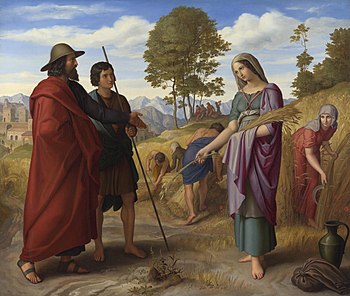At nightfall tonight, we spend the entire first night of Shavuot studying Torah.
The traditional Tikkun Leil Shavout (“Rectification for Shavuot Night”) study program includes the opening and closing verses of each book of the Written Torah (Tanach), as well as of each Parshah; the entire Book of Ruth; the opening and closing sections of each tractate of the Talmud; a list of the 613 mitzvot; and selected readings from the Zohar and other Kabbalistic works.
On this day, Moses made a covenant with the Jewish people at the foot of Mount Sinai at which the people declared,
“All that God has spoken, we shall do and hear” (Exodus 24:7)
committing themselves to observe the Torah’s commandments (“do”) and strive to comprehend them (“hear”), while pledging to “do” also before they “hear.”
Remembering that on the 6th Sivan of the year 2448 from creation (1313 BCE), seven weeks after the Exodus, mankind was blessed by the Elohim revealing Himself on Mount Sinai and wanting to give the Words of Guidance.

Taken the day of Erev Shavuot of 2008 at Valley Beth Shalom’s main sanctuary (Photo credit: Wikipedia)
The entire people of Israel (600,000 heads of households and their families), as well as the souls of all future generations of Jews, heard God declare the first two of the Ten Commandments and witnessed God’s communication of the other eight through Moses. Following the revelation, Moses ascended the mountain for 40 days, to receive the remainder of the Torah from God.
The Torah itself does not explicitly mention the connection of this day with the the giving of the Torah on Sinai (Matan Torah). It merely says,
“You shall count fifty days (from the second day of Pesach)… and you shall proclaim on that selfsame day: It shall be a holy convocation unto you.”
Now although we know that the Torah was given on the 6th of Sivan, during the time when the calendar was fixed by eyewitnesses to the new moon, the fiftieth day — Shavuot — could fall on the 5th, 6th, or 7th of Sivan. Therefore I would love to mention this today and call to you for remembering the set apart moment of the elohim coming closer to His People, giving them something precious to hold on, so that they could be sure to please their Most High Maker.
Nonetheless, now that the calendar is no longer variable, Shavuot always coincides with the 6th. And there is also a Biblical allusion to the significance of Shavuot in the fact that unlike the other festivals, the word “sin” is not mentioned in connection with the special sacrifices for Shavuot, and this is related to the Israelites’ acceptance of the Torah, which gave them the special merit of being forgiven their sins.
Within the diversity of the world we as lovers of God do have to come in unity with the divine Maker. When we look at the world around us, there are enough things which reveal the Master Hand of the Divine Creator. This should give us confidence that the Most High is always active, omnipresent and that it is on Him we should rely.
In the month of Nisan we remembered how God’s People “fled” from Egypt, both literally and metaphorically — fled from the knowledge of the world and were filled only with the revelation from above. Their unity was of the world-denying kind. The elohim for them was One because they knew only one thing, because the world had ceased to have being in their eyes.
Iyar, the second month, is the month wholly taken up with the Counting of the Omer, and preparing ourselves for the coming events at Sinai. The divine Creator wants each of us to be aware of ourselves and likes to see that we can have our world as something apart from God which has to be suppressed.
Now in the third month, Sivan, we look up at the time when the Torah was given, when God and the world became one thing.
This was the moment of genuine unity, when what had seemed two things became a third, including and going beyond both. {Jewish saying}
We must look at ourselves and recognise that we are still far off from being really totally “one with God”. We are not yet at one with the Eternal Most High Elohim Hashem Jehovah. Many still even do not dare to come close to Him pronouncing His titles or to enunciate His Divine Name.
We should be aware that first of all there has to be a willingness to come close to God. The best way to do that is by studying the Word God Himself has delivered to mankind. Today nobody really has an excuse that he or she would not have been able to hear God’s Word. Nearly everywhere in the world the Word of God is available in oral form, printed form with Bible translations in lots of languages so that people always could find one or an other language they can read and understand.
The ultimate unity with the Most High comes only through (learning) Torah, when the mind of man and the will of God interfuse.
Tomorrow I’ll look at two other events which occurred on Shavuot
+
Preceding articles
9 Adar and bickering or loving followers of the Torah preparing for Pesach
Next
To turn the world into a “vessel” receptive of God
++
Additional reading
- Why Sabbaths or Sabbath plural “shabbatot”
- The Advent of the saviour to Roman oppression
- Tongues a sign of authenticity or divine backing
+++





























































